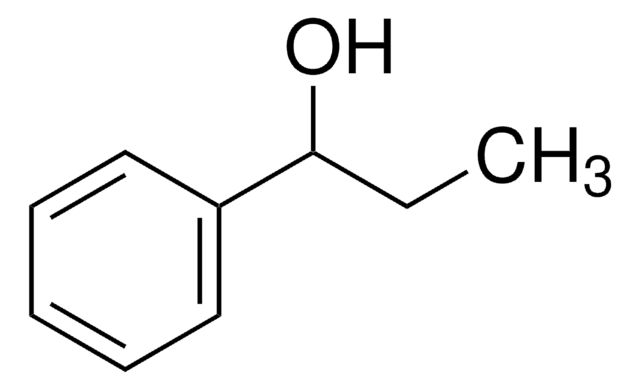184756
4-Phenyl-1-butanol
99%
About This Item
Análisis
99%
formulario
liquid
índice de refracción
n20/D 1.521 (lit.)
bp
140-142 °C/14 mmHg (lit.)
densidad
0.984 g/mL at 20 °C (lit.)
cadena SMILES
OCCCCc1ccccc1
InChI
1S/C10H14O/c11-9-5-4-8-10-6-2-1-3-7-10/h1-3,6-7,11H,4-5,8-9H2
Clave InChI
LDZLXQFDGRCELX-UHFFFAOYSA-N
¿Está buscando productos similares? Visita Guía de comparación de productos
Descripción general
Aplicación
Código de clase de almacenamiento
10 - Combustible liquids
Clase de riesgo para el agua (WGK)
WGK 3
Punto de inflamabilidad (°F)
230.0 °F - closed cup
Punto de inflamabilidad (°C)
110 °C - closed cup
Equipo de protección personal
Eyeshields, Gloves, multi-purpose combination respirator cartridge (US)
Certificados de análisis (COA)
Busque Certificados de análisis (COA) introduciendo el número de lote del producto. Los números de lote se encuentran en la etiqueta del producto después de las palabras «Lot» o «Batch»
¿Ya tiene este producto?
Encuentre la documentación para los productos que ha comprado recientemente en la Biblioteca de documentos.
Los clientes también vieron
Nuestro equipo de científicos tiene experiencia en todas las áreas de investigación: Ciencias de la vida, Ciencia de los materiales, Síntesis química, Cromatografía, Analítica y muchas otras.
Póngase en contacto con el Servicio técnico